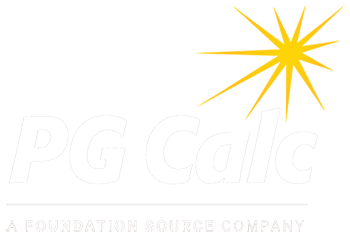At the end of the year, donors may be frazzled by holiday planning and leave their charitable giving to the last minute. To help ensure that their end of year gifts count for the current tax year, here’s a primer on how to determine gift date. We’ve also included a digital checklist as an additional resource from our experts at Foundation Source with the most important milestones for private foundations throughout the calendar year—including key dates for year-end giving.
Cash (Check)
If handed to you in person, the date of gift is that date or as of the date on the check, whichever is later.
If mailed to you through the U.S. Mail, the gift is made as of the postmark date. Whoever is charged with opening the mail should understand the importance of keeping or scanning the envelope. A check might be dated December 31, but if the postmark is January 2, the gift has been made in the new year, not the old. If the check is an IRA QCD gift, see further guidance below.
If sent via courier (such as FedEx), the date of gift is generally interpreted as the date of receipt by the charity. However, some legal minds assert that the courier is acting as the charity’s agent, and thus date of gift is the date it is accepted by the courier. We encourage you to refer to your own counsel for guidance. Whatever your practice, make sure it is consistent for all gifts throughout the year and not something that only applies at year end.
Cash (Wire)
Date of gift is the date the cash settles in the charity’s bank account, not the date the donor requested the transfer.
Stock
When transferred electronically – DTC (Depository Trust Company) transfers - the gift is complete on the date the shares settle in the charity’s account, not the date the donor requests the transfer.
If a donor hands over actual paper certificates and stock powers, then the gift date is determined the same as noted above for cash, whether hand delivered, sent via US Mail, or by courier. Nonetheless, if the certificate and stock powers are delivered separately (a good practice if mailed or couriered), the gift date is the receipt of the last of the two documents.
If the stock is reregistered on the books of the corporation, the date of the gift is the date of the new stock certificate. Reregistering ownership of stock shares can take up to several weeks, so it is wise for donors to avoid this approach at year end.
Mutual Funds
By the second week of December, it is already too late for most mutual fund gifts to be completed. This is because most mutual funds cannot be sent via DTC. Rather they must be journal entry transferred within the custodian company itself, from the donor’s brokerage account to an account in the name of the charity. If the charity does not already have an account open at the custodian, then one will need to be opened, and “know your customer” due diligence by the custodian can take weeks to complete, rendering a gift near the end of the year impossible.
There are a small number of mutual funds which can be transferred via DTC, but these are usually “closed end” mutual funds, meaning a limited number of shares exist.
Credit Card
For outright gifts, the gift is complete as of the date of charge. The amount charged to the donor is the amount of the gift. Any fee assessed to the charity does not reduce the gift amount; it is a cost absorbed by the charity.
For gifts to establish a charitable gift annuity via credit card, the gift is complete as of the date the charge is posted to the donor’s account. However, best practice is to treat the funding amount of the gift annuity as the charge net of fees.
You may wonder why this is so, when the IRS treats the charity’s payment of the fee for an outright gift as part of the cost of raising the gift. If the fee is included in the funding amount, then the charity is providing an economic benefit to a private individual, which should be avoided. In the example of a $10,000 annuity established via a credit card with a 2% fee, the annuitant would receive income from the donor’s contribution of $9,800, and income from the charity’s contribution of $200.
IRA Qualified Charitable Deduction (QCD)
While IRA QCD’s are typically made by check, the means of delivery (whether they are hand-delivered, sent via courier or US Mail) is irrelevant because the date of gift is when the IRA administrator makes the distribution from the donor’s account to the charity. If the IRA administrator is issuing the check directly to the charity, in most cases the administrator removes the funds from the IRA account when issuing the check and that date is what will be reported on Form 1099-R.
If the donor has check writing ability for their IRA, the gift will not be complete until the charity cashes the check and the funds leave their account. Your business office must be keenly aware at year end to deposit QCD gifts immediately.
We hope this review of gift dates will help you work with your last-minute donors. We wish you a successful end to the year!

